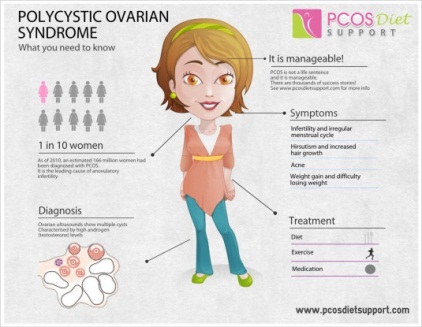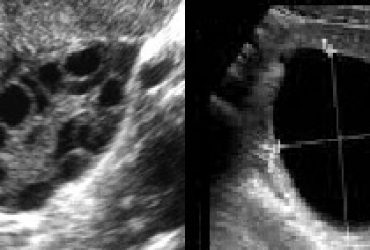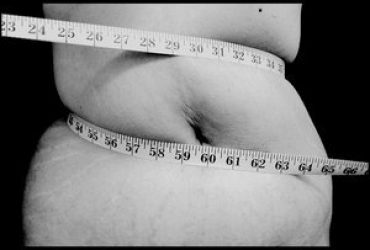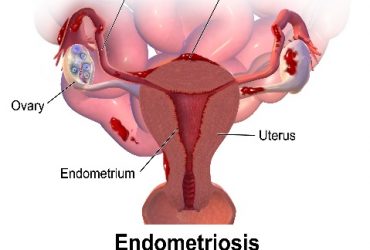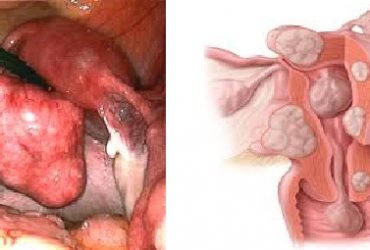What is Polycystic Ovary Syndrome (PCOS)?
It is a condition which develops due to chronic poor ovulation and disturbed female hormone balance. It may affect any age group between puberty and menopause.
Unlike what the name may suggest to the general person, this disease cause large ovarian cysts needing intervention. But it, rather, causes enlarged ovarian size due to large numbers of small follicles (small cysts <12 mm each) of eggs which fail to grow to maturity to reach ovulation.
![C:\Users\Dr.Ashoush\Downloads\polycystic_ovary[1] (2).jpg](http://sherifashoush.com/wp-content/uploads/2019/10/c-users-dr-ashoush-downloads-polycystic_ovary1.jpeg)
What are the causes of such a condition?
There are several causes, but the most common is a defect in the ovary’s response to the stimulating signals from hormones of other glands in the body. This may sometimes be due to some familial genetic predisposition. In some other cases, it may be a genetic predisposition related to the familial predisposition to late-onset Diabetes Mellitus. It may also be related to chronic diseases of other hormone producing (endocrine) glands which interact with the control of ovulation. And although obesity, in itself, is not a direct cause of PCOS yet, the latter symptoms or complications are usually more common with increased body weight, especially abdominal and waist circumference.
What are the effects of such disease?
Chronic defective ovulation leads to elevated male hormone level (which is present in low amounts in every normal female), which has several clinical effects. In addition, a chronic disturbance of both male and female hormone levels may negatively affect several systems in the human body, including blood vessels and control of blood sugar or blood lipids (such as cholesterol).
What are the symptoms I may develop if I am suffering of such disease?
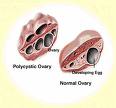 Before we start describing such symptoms, it is important to clarify that not all ladies with PCOS develop symptoms, some do not have any symptoms whatsoever, while others may have different combinations of the list of symptoms listed underneath.
Before we start describing such symptoms, it is important to clarify that not all ladies with PCOS develop symptoms, some do not have any symptoms whatsoever, while others may have different combinations of the list of symptoms listed underneath.
This depends on the severity of the disease and the body’s ability to correct any abnormal hormone balance.
Symptoms or complications may get more common with weight gain or advancing age, they may be divided into:
- Symptoms of poor ovulation:
Infertility, recurrent miscarriage, irregular or heavy menstrual periods.

2. Symptoms of increased male hormone levels:
Increased hair growth in abnormal areas (hirsutism) and acne.
3. Symptoms of disturbed female hormone levels:
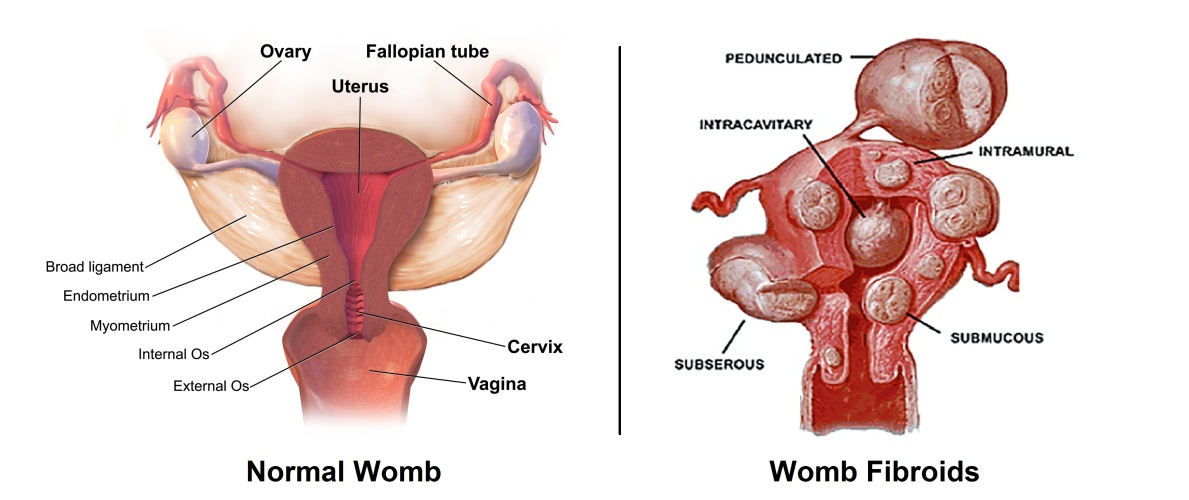 Vaginal bleeding, uterine benign tumors such as fibroids, endometriosis (a condition causing pelvic adhesions and chronic pelvic pain), breast cysts or breast pain. If left untreated for a long duration, PCOS increases the risks of developing malignant tumors of breasts, uterus and ovaries.
Vaginal bleeding, uterine benign tumors such as fibroids, endometriosis (a condition causing pelvic adhesions and chronic pelvic pain), breast cysts or breast pain. If left untreated for a long duration, PCOS increases the risks of developing malignant tumors of breasts, uterus and ovaries.
4. Other symptoms related to hormone disturbances:
Easy weight gain and difficulties losing weight, hypertension, Diabetes Mellitus, high blood cholesterol; all of these are more common the older the lady gets. The risk of hypertension and miscarriage are increased during pregnancy.
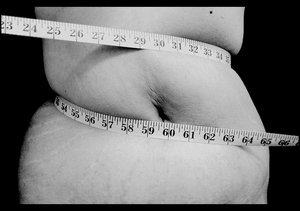
How is this disease diagnosed?
Clinical assessment of those who develop one or more of the symptoms is obviously the first step. It is advisable to consult a doctor experienced in the field whenever a close relative develops such disease, since many cases actually run in families, so this gives a chance to limit the progress of such a disease in the rest of the family.
Diagnosis also needs ultrasound scanning of the uterus and ovaries as well as some blood tests. This may also diagnose some of the previously discussed complications.

I am not trying to get pregnant so, why is it important to diagnose such a disease?
It is actually very important since, in addition to reaching a diagnosis for the cause of any of the other symptoms of such a disease (irregular periods, hirsutism, etc.), a correct and timed diagnosis allows preventing or reducing the impact of many of the previously mentioned long term complications. Thus, early diagnosis allows the lady to have regular screening for diabetes mellitus, cholesterol level, hypertension or breast diseases.
What are the types of treatment available?
This largely depends on the main complaint of each lady. For instance, there treatment for excessive hair growth (hirsutism) using medicines to slow hair growth and LASER to destroy the already grown hair follicles. There are treatments for anovulation using ovulation induction medications. Weight control and physical exercise help alleviate the disease’s severity. Combined hormone pills help control irregular periods. Metformin and vitamin D help reduce the severity of the disease and help weight loss. Occasional cases may need laparoscopic ovarian cauterization or surgical treatment of some complications. This is in addition to treatment of systemic complications as hypertension or diabetes mellitus.



